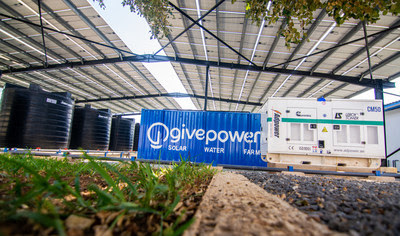China’s advances in quantum computing will give a new advantage to its armed forces, already the world’s third strongest, analysts say.
Quantum refers to a type of computing that lets high-powered machines make calculations that are too complex for ordinary devices.
The concept discovered by American physicist Richard Feynman in 1980 has two key military uses, the think tank International Institute for Strategic Studies said in a 2019 paper. It can decrypt encoded messages and send cryptographic keys that intercept otherwise secure communication chains, the study says.
“I think the challenge is basically in the dual civilian-military strategy of China where the government will enlist the private sector into its military modernization program,” said Alexander Vuving, professor at the Daniel K. Inouye Asia-Pacific Center for Security Studies, in Hawaii. “Also, the government of China spends a lot of money in research and development.”
China’s name surfaced last month when IT consulting firm Booz Allen Hamilton said that within a decade Chinese “threat groups will likely collect data that enables quantum simulators to discover new economically valuable materials, pharmaceuticals, and chemicals.”
China on the move
It’s unclear how far Chinese researchers have advanced quantum computing, but the Pentagon’s 2021 report to Congress on China says the Asian superpower “continues its pursuit of leadership in key technologies with significant military potential.”
China’s 14th Five-Year Plan, an economic blueprint, prioritizes quantum technology among other new fields, the report to Congress adds, and it intends to install satellite-enabled, global “quantum-encrypted communications capability” by 2030.
Quantum could help detect submarines and stealth aircraft among other “military vehicles,” said Heather West, a senior research analyst with market research firm IDC in the U.S. state of Massachusetts. Quantum computing can break “classical algorithms” to check on another country’s military, she told VOA.
The University of Science and Technology of China in Hefei last year made the first “definitive demonstration” of exploiting quantum mechanics for computations that would be “prohibitively slow on classical computers,” the science journal Nature reported. Google and NASA had claimed “quantum supremacy” in 2019.
The state-run China Daily news website said in September the country had “achieved a series of breakthroughs in quantum technology including the world’s first quantum satellite, a 2,000-km quantum communication line between Beijing and Shanghai, and the world’s first optical quantum computing machine prototype.” China Daily did not mention military use.
China has alarmed other countries in the past by merging civilian and military infrastructure, part of a Military-Civil Fusion Development Strategy that makes it hard for the outside world to judge when academic research will become an asset of the People’s Liberation Army.
Although quantum computing worldwide remains at a “nascent stage,” multiple countries are in a race to develop it, Vuving said. He points to the United States, India, Japan and Germany, in addition to China. Any frontrunners are unlikely to last long, he said, as rivals would quickly copy their breakthroughs.
Multiple countries at risk?
The Booz Allen Hamilton report says many organization leaders and chief information security officers “lack insight into the practical importance of quantum computing and how to manage related risks.”
“They don’t know how and when the technology might become useful — and how it might shape the behavior of threat actors such as China, a persistent cyber adversary of government and commercial organizations globally and a major developer of quantum-computing technology,” the report says.
The People’s Liberation Army maintains the world’s third-strongest armed forces after the United States and Russia, according to the GlobalFirePower.com database. Japan, Taiwan and other Southeast Asian countries fret particularly over the expansion of the PLA Navy in disputed tracts of sea. Washington has stepped up military movement in the same seas since 2019 to monitor China’s activities.
“Taiwan, the United States or the European Union are all likely targets for China to launch quantum computing attacks as long as countries do not have robust quantum cryptography to defend,” said Chen Yi-fan, assistant professor of diplomacy and international relations at Tamkang University in Taiwan.
China is already suspected of using cyberattacks against Taiwan, a self-ruled island that Beijing says is part of its territory.
In the military realm outside China, quantum computing forms part of the AUKUS military technology sharing deal among Australia, the U.K. and the U.S. announced in September over Beijing’s objections.
In August 2020, the White House, National Science Foundation and Department of Energy announced it would award $625 million over five years for quantum R&D, the National Defense Industrial Association says.
“We’re seeing a lot of research and development going into the Department of Defense in the U.S.,” West said. “I don’t think they would be pouring the money into it if they didn’t think there was that potential.”
Researchers in Singapore, a well-off city-state, and Taiwan, a world tech hub, are exploring quantum technology as well.
Smaller countries couldn’t compete with China’s quantum computing resources, said Carl Thayer, emeritus professor of politics at the University of New South Wales in Australia. They would need engineers, technicians and money, he said.
“That’s for the big boys, for the people with money, sophistication, knowledge. Other countries could toy around, but they wouldn’t have the ability to go very far with it, I think,” Thayer said.
Source: Voice of America

